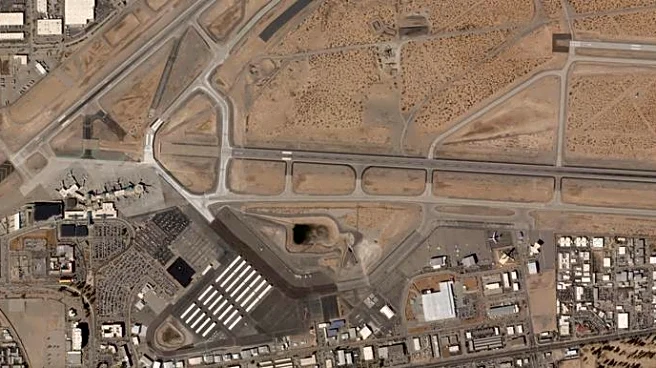What is the story about?
What's Happening?
Hyundai CEO José Muñoz recently addressed the impact of a significant ICE raid at the Hyundai-LG Battery Plant in Ellabell, Georgia. The raid, conducted by the U.S. Department of Homeland Security, resulted in the detention and deportation of over 300 South Korean workers. Muñoz, who was unaware of the raid until it was reported in the news, expressed empathy for the affected workers and their families. The raid has delayed the opening of the battery plant by two to three months. Despite this setback, Hyundai remains committed to its investment plans, including a $2.7 billion expansion of the Georgia complex, which is expected to create 3,000 new jobs. Muñoz highlighted the need for specialized visas for foreign workers required for specific expertise in the battery plant operations.
Why It's Important?
The ICE raid at the Georgia battery plant underscores the complexities of immigration enforcement and its impact on international business operations. Hyundai's investment in the U.S. is part of a broader strategy to expand its electric vehicle production capabilities. The delay in the plant's opening could affect Hyundai's production timelines and its ability to meet growing demand for electric vehicles. The situation also highlights the need for policy adjustments regarding visas for specialized foreign workers, which could influence future international collaborations and investments in the U.S. automotive industry.
What's Next?
Hyundai plans to continue its investment in the Georgia plant, despite the recent challenges. The company is working to mitigate the impact of the raid by relocating workers from other plants to fill the labor gap. Discussions between the U.S. and South Korean governments may lead to policy changes to prevent similar incidents in the future. Hyundai's commitment to expanding its operations in Georgia remains strong, with plans to proceed with the second phase of the complex's development.
Beyond the Headlines
The incident raises broader questions about the balance between immigration enforcement and economic development. The need for specialized visas for foreign workers could become a focal point in discussions about immigration policy reform. Additionally, the raid may prompt other international companies to reassess their strategies for operating in the U.S., particularly in industries requiring specialized expertise.

















